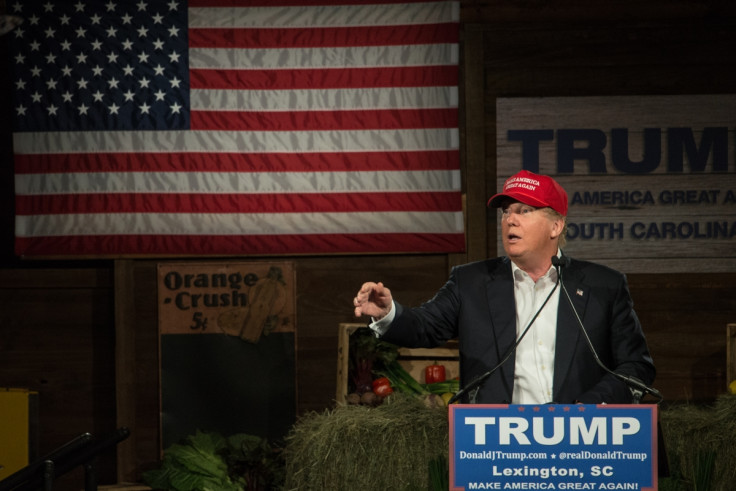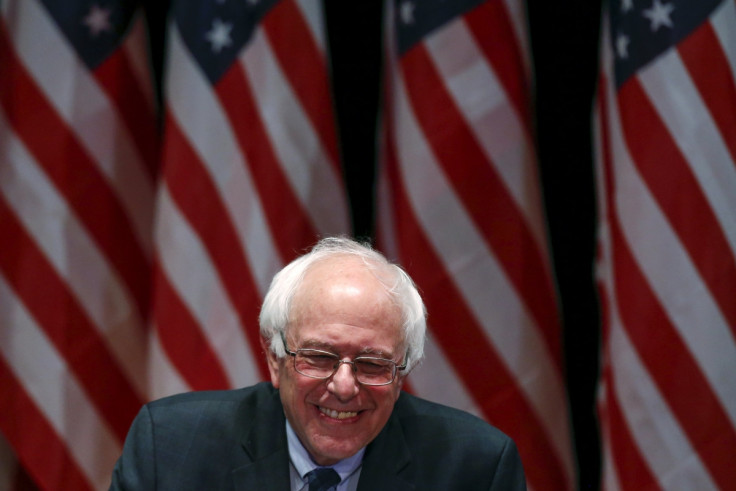Donald Trump is not an idiot – he could be the next US President

Much European commentary on the Trump phenomenon has been clueless, marked by open bewilderment at the bizarre spectacle. In a similar but less spectacular fashion, the unexpected success of Bernie Sanders (though he still faces an uphill struggle to beat Hillary Clinton) has also taken many pundits – myself included – by surprise.
The common reaction to Trump seems to be that he is a cretin playing to equally cretinous crowds. The common reaction to Bernie seems to be that he is a sort of "American Corbyn" – a hopeless, fundamentally irrelevant idealist. Neither of these two perceptions is accurate.
I shall briefly explain why and argue that Trump, at least, has an excellent chance of becoming the next president of the US. For similar reasons, I think that Sanders (conditional to him beating Clinton to the Democratic nomination, which is unlikely) he also would be a surprisingly strong candidate.
First, let me dispel a few myths about Trump. Stupid people do not go to Wharton and have a long and highly successful career in real estate and media. Stupid people do not crush the opposition in their first serious political campaign – for the Republican nomination for the presidency, no less. No, it is not true that Trump would be richer if he had indexed his father's wealth, and even if it were, this criticism is truly bizarre: would you rather not have the value Trump has created over his career? The world needs some people to go into careers where they do not simply attempt to amass the most wealth by the easiest route possible, otherwise nobody would ever have built a railway.
I do not think Trump is a Machiavellian super-genius, but nor is he an idiot mashing buttons: he learns from his mistakes very quickly and has become remarkably more polished as a candidate. He is also exceptionally quick to identify and refine messages that work.
It is also a common myth that Trump is some sort of extreme right-winger or quasi-fascist. With the exception of his views on immigration, Trump is a highly centrist, perhaps even liberal Republican, who has taken frankly heretical positions on healthcare, Planned Parenthood and the Iraq War. If your core issue is gay rights, Trump is probably one of the best Republican candidates you could hope for.
He shows no signs of wishing to overthrow the established political order, Citizens United apart. Based on his personal life and past record, I highly doubt that Trump would attempt to appoint Supreme Court justices likely to overturn Roe vs Wade and Obergefell vs Hodges.
Like the much misunderstood Sarah Palin – who has, unsurprisingly, endorsed him – Trump is in many ways a remarkably non-conservative Republican, as Nate Silver's FiveThirtyEight notes. Perhaps it is no surprise that the intellectual voice of Movement Conservatism, the National Review, has recently published an entire "anti-Trump" special edition. Supposed moderates such as Marco Rubio are in fact by any reasonable metric far more extremist and immoderate than Trump.

Now for Sanders. Bernie seems to be viewed as an "American Corbyn", capable of inspiring only the fairly fringe liberal left – the Occupy Wall Street crowd. The analogy is misleading. Sanders – senator for rural Vermont, a state with high gun-ownership rates and an extremely white population – has a, liberally speaking, highly dubious record on gun control. Though his foreign policy is quite doveish – probably more so than I am really comfortable with – it is also far from Corbynesque.
You would find no endorsement of anti-Western terrorists in Sanders's record. More pertinent than Bernie's record, however, is his current messaging. This is best encapsulated by this extraordinarily brilliant advert: a minute of visuals of ordinary Americans doing quintessentially American things, interspersed with clips of ever-growing Sanders rallies. Crucially, it is set to Simon & Garfunkel's America, and the key words that are sung at the climax of the video are "they've all come to look for America".
"Come to look for America"; "Make America Great Again". See the similarity? Both these messages evoke nostalgia for a vision of an America that is being lost. The contrast is most stark with Marco Rubio's slogan "A new American century". Trump and Sanders advocate for a return to the old century, while Rubio anticipates the new. Trump argues that America is being stolen from its people by mass immigration – and, quasi-implicitly, the oligarchs in the political/financial classes who refuse to close its borders. Sanders argues that America is being stolen from its people by the oligarchs in the political/financial classes who defraud the people – and, quasi-implicitly, permit mass-immigration.
The major difference between Trump and Sanders is tone, but the messages are, on close inspection, not exactly dissimilar. Incidentally, this is why I think Sanders might just be a stronger candidate against Trump than Hillary Clinton, and furthermore Sanders is a quite masculine man who seems comfortable in his own skin – not the kind of man that Trump could easily emasculate in the way he has Jeb Bush.
Nostalgia is a powerful message at a time when American labour-force participation rates have declined dramatically since the turn of millennium, partly due to extensive Chinese competition and its medium-term negative effects on wages and employment. When the outcomes of the last two major wars, against Iraq and Afghanistan, remain unclear at best. When median income have been either flat or falling over the past decades (for all the imperfections of this measure). When, perhaps most crucially of all, growing diversity has destroyed the everyday social trust that used to define America's communities.
The major difference between Trump and Sanders is tone, but the messages are, on close inspection, not exactly dissimilar. Incidentally, this is why I think Sanders might just be a stronger candidate against Trump than Hillary Clinton
Nostalgia is a message that Donald Trump is to attempt to ride all the way to the White House, and it should not be thought implausible that he can do so. You don't have to squint too hard to think that for the ordinary American, especially the ordinary white American, a return to the past might be more attractive than an embrace of the future.
Fundamentally, the distinction between Trump and Sanders and the rest of the candidates is that Trump and Sanders are standing for the idea of America as a true "nation state" that places the welfare of its own citizens at the core of its identity. The others have, I believe, tacitly or openly accepted the idea of America as an extended global marketplace, a home of essentially unrestrained free-market economics with quasi-open borders.
A "market state" that places the opportunity of its own citizens at the core of its identity – and, in its fullest conception, aims to maximize the opportunities of all marketplace participants, even non-citizens.
The distinction between "nation state" and "market state" is explored most fully in Philip Bobbitt's superb books The Shield of Achilles and Terror and Consent, which I cannot recommend highly enough. The distinction between opportunity for the individual and welfare of the whole is key. Prioritising the welfare of the whole, in practice and theory, implies the limitation of the opportunity of the individual to live their life the way they want, and to make near-limitless wealth.
Evidently, both nation state and market state have their strengths and weaknesses. At this point I'll leave the debate to the American electorate, and make no serious comment here, other than to ask this question: why should anyone fight and die for a market when they can simply move to a new one?
Andrew Sabisky is an independent research worker and writer. Follow him on Twitter @AndrewSabisky
© Copyright IBTimes 2025. All rights reserved.






















